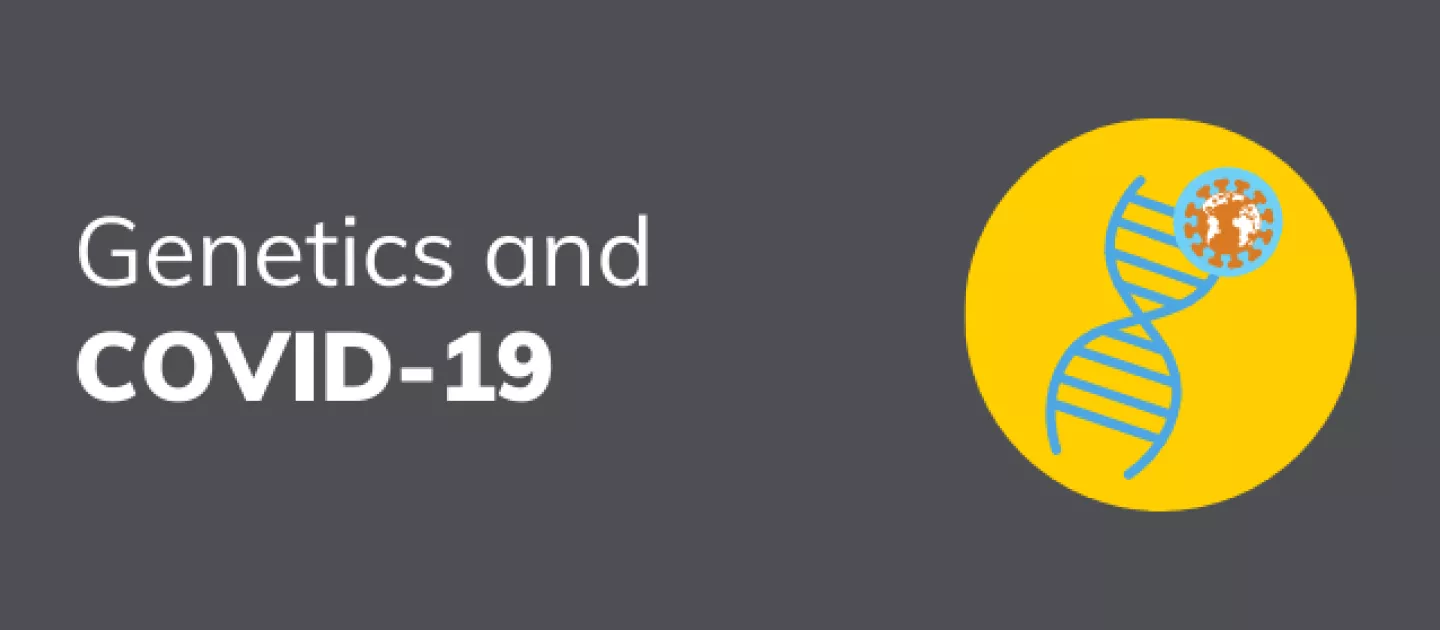It has been over a year since the first cases of COVID-19 were first detected, and scientists are still trying to make sense of why some infected individuals get severe symptoms while others may have no symptoms at all. Many research studies have been conducted to understand how genetics may play a role in how different individuals react to the virus. Having insight into how genetics might determine the severity of reactions to contracting COVID-19 can open the door to developing more effective treatments. Here’s a closer look into how genetics may be linked to certain COVID-19 symptoms. There’s a lot left to learn, but it’s a fascinating start.
Do Genetics Play a Role in Severity of COVID-19?
A recent study published in Nature in 2020 looked at the genomes of 2,244 critically ill patients with COVID-19 to understand how the biological immune system in those with severe COVID-19 symptoms differ from those with mild to no symptoms. The findings of this study were that there were two biological components related to mortality risk in COVID-19 patients, which are immune response and risk of developing lung inflammation.
Furthermore, the study reports that five key genes responsible for preventing immunity to viruses and lung inflammation were associated with COVID-19. Researchers found that two genes related to immune response, TLR7 and receptor subunit IFNAR2, were present in young people with severe COVID-19 symptoms. They also found a particular genetic marker on chromosome 3p21.31 associated with risk of pulmonary inflammation was present in patients who had been hospitalized.
These findings tell researchers that there is the potential to be more genes that affect the severity of diseases, and hope that they can continue to analyze the genome to understand more about them.
Sara Chohhisey, a research fellow at the University of Edinburgh and coauthor of the study notes, “A chunk of the answer is in our genes,” but “it’s unlikely that a single element is fully responsible for the development of severe COVID-19. It’s more likely to be a combination of factors.” Researchers believe factors may include genetics, age, obesity, gender, and other characteristics. One thing that medical specialists know is that that individuals with existing medical conditions, including certain genetic conditions, are at a higher risk of developing severe COVID-19 symptoms like pneumonia.
What Genetic Conditions Increase the Risk of Developing Severe Symptoms?
What does it mean to have a genetic predisposition? When a person has a genetic predisposition, there is an increase in the probability that they could develop a particular disease. As there is so much information researchers are still learning about COVID-19, many people who have a genetic predisposition may wonder if they are at a higher risk of developing more severe symptoms.
Below are just a few of the genetic conditions which may increase the likelihood of having more severe symptoms if one contracts COVID-19 according to the Center or Disease Control (CDC).
- Cancer
- Heart conditions, such as heart failure, coronary artery disease, or cardiomyopathies
- Immunocompromised state (weakened immune system) from solid organ transplant
- Sickle cell disease
- Type 2 diabetes mellitus
- Cerebrovascular disease (affects blood vessels and blood supply to the brain)
- Cystic fibrosis
- Hypertension or high blood pressure
- Immunocompromised state (weakened immune system) from blood or bone marrow transplant, immune deficiencies, HIV, use of corticosteroids, or use of other immune weakening medicines
- Neurologic conditions, such as dementia
- Liver disease
- Pulmonary fibrosis (having damaged or scarred lung tissues)Thalassemia (a type of blood disorder)
- Type 1 diabetes mellitus
In addition to how genes can impact the lives of people who contract COVID-19, researchers have also been hard at work studying other differences when it comes to patients with COVID-19 – one being blood type.
How Blood Type May Impact Response to COVID-19?
As researchers continue to look at how genetics plays a role in severity of COVID-19 symptoms, some studies have looked at how blood type impacts the body’s response to this disease. From these studies, researchers are seeing that a person’s blood type, which is inherited, can be an indicator of certain COVID-19-related characteristics.
Two studies published in 2020 in Blood Advances looked at medical data from nearly 3 million individuals and compared results of those who tested positive vs negative for COVID-19. They controlled for ethnicity throughout the study given blood group distribution differs among ethnic subgroups.
Results of these studies propose that individuals who tested positive for COVID-19 were reported to have a blood type of A or AB. Thus, those with blood type O or B may have a lower risk of infection or other severe outcomes.
Results also conclude that individuals with blood types A and AB may have increased risk of severe COVID-19 symptoms. This conclusion is based on the amount of time an individual remained in intensive care and the number of individuals who required mechanical ventilation, had kidney failure, etc.
While research around COVID-19 has come a long way, there is still a lot to be learned about this virus. The recent research into how our genes and blood type correlate with the severity of having COVID-19 has given us a little more insight into how it affects our bodies. Knowing this information and continuing to learn more about it is extremely important in helping us prepare and to be more proactive in the treatment of COVID-19.
Follow us on Facebook, Twitter, and Instagram to join the conversation and stay up-to-date on cord blood & tissue, genetics, pregnancy, and everything in between!
Disclaimer: PerkinElmer and ViaCord do not endorse or make recommendations with respect to research, medications, or treatment. All information is provided for informational purposes only.
Resources:
Nature. Genetic mechanisms of critical illness in COVID-19. https://www.nature.com/articles/s41586-020-03065-y
The Scientist. Key Genes Related to Severe COVID-19 Infection Identified. https://www.the-scientist.com/news-opinion/key-genes-related-to-severe-covid-19-infection-identified-68276
Medline Plus. What does it mean to have a genetic predisposition to a disease? https://medlineplus.gov/genetics/understanding/mutationsanddisorders/predisposition/
CDC. People with Certain Medical Conditions. https://www.cdc.gov/coronavirus/2019-ncov/need-extra-precautions/people-with-medical-conditions.html#serious-heart-conditions
American Society of Hematology. Studies Offer New Evidence for Possible Link Between Blood Type and COVID-19 Susceptibility and Severity. https://www.hematology.org/newsroom/press-releases/2020/possible-link-between-blood-type-and-covid-19











